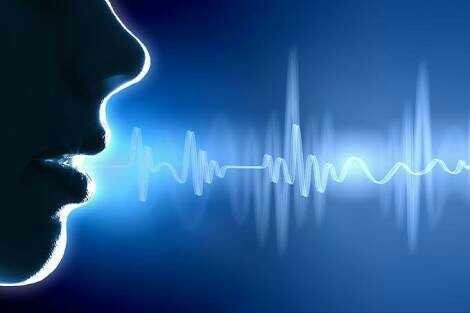What does a 'normal' voice sound like? Research shows that many people agree on what sounds abnormal, but can't seem to agree on what sounds 'normal'

Have you at any point turned the dial on the radio or exchanged the TV station since you found the nature of the moderator's voice grinding? What is it about a man's voice that can be relieving, exasperating or even sexy? Jody E. Kreiman, at the University of California, Los Angeles, is handling the subject of how we see voice quality by concentrate how individuals think about a "typical" voice.
People convey their expectations, sentiments and wants verbally, so voice issue can have crushing individual and expert results. An apparent voice variation from the norm may prompt an antagonistic evaluation of the speaker's insight, wellbeing and identity. "How you sound influences each part of your reality as a natural being," Kreiman said. "Voice quality is your sound-related face."
Amid the 175th Meeting of the Acoustical Society of America, being held May 7-11, 2018, in Minneapolis, Minnesota, Kreiman will portray her work on voice recognition and what it implies for a voice to sound "typical."
"When we began taking a gander at the writing, everybody evades the topic of ordinariness," Kreiman said. "Obviously, an incredible arrangement relies upon what we call 'ordinary' and not 'typical.'" Kreiman and her associates have conceived another technique to evaluate voice quality by joining the fields of physiology, optimal design, acoustics and recognition.
Kreiman had volunteers tune in to voice chronicles and request them as per the apparent seriousness of vocal pathology. Each chronicle comprised of a one-moment supported vowel sound delivered by 100 female speakers. Half of the vocalizations were acquired from clinical chronicles of people with analyzed voice anomalies, while the rest of the accounts were gotten from UCLA understudies with no known vocal issue.
"We are not keen on situations where individuals have a huge anomaly," she said. "We are more intrigued by marginal cases so we can start characterizing a limit amongst 'ordinary' and not 'typical.'"
Is there such a mind-bending concept as a typical voice? The short answer isn't generally.
The outcomes recommend that audience members were exclusively reliable in their judgments, setting voice tests on the range from ordinary to unusual, and here and there concurring on which voices sounded strange. Be that as it may, inside the gathering, respondents did not concede to which voices sounded "ordinary." This may be on account of they utilized distinctive vocal qualities when making their judgments. These outcomes recommend that "typical" quality isn't a solitary vocal state.
"These outcomes are truly saying that the present view that voice discernment is only the voice flag, or the individual talking, or the individual tuning in, isn't right," Kreiman said. "We are managing a dynamic cooperation between the speaker, the flag, the specific circumstance and the audience, and we need to see how all these distinctive parts go together to truly comprehend voice."
Kreiman recognizes that there are confinements to the investigation. The chronicles just included female speakers, however they are examining an accumulation of male speakers in follow-up work. Moreover, the chronicles just comprised of managed vowels and utilized a constrained acoustic model.
I am not expert, or even minorly enlightened, on this subject, but couldn't it be possible to determine, say, the tone of voice (like the note, C flat and such. I'm not musically oriented) of a range of people, and then using that calculate the most common recurring factor in all their voices, thereby creating an "average" sound of voice. It can also then be used to determine how "normal" your voice is, based on the amount of deviation from the standard. Again, I don't really know anything about this subject but maybe one idea triggers another. Interesting piece.